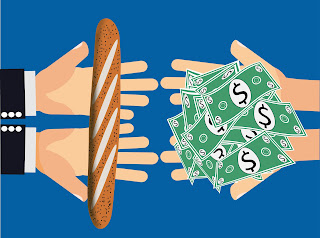 | |
| More than 70% of consumers believe they are being overcharged for food. (Adobe Stock photo) |
Efforts by food companies to maintain past revenue gains while lowering prices is a corporate balancing act. Meanwhile, increasing food prices has become a political hot button. "Many consumers and politicians have said they are angry about growing corporate profits while household budgets don’t go as far as they used to," the Journal reports. "Moderators opened June’s presidential debate with a question about sharply higher costs for groceries and housing."
Food executives have repeatedly said U.S. consumers will eventually adjust to higher prices, and emphasized that despite profit increases "they did not gouge consumers and are working to keep prices as low as possible," Newman and Haddon write. "They have said that they need to maintain their profit margins to fund new products and that a number of expenses. . . surged in recent years and have remained high. . . . Still, more than 70% of consumers believe that restaurants, supermarkets and food manufacturers are overcharging. . ."
The word "value" has become restaurants' new mantra. The Journal reports, "Restaurant Brands International’s Burger King and McDonald’s kicked off limited-time $5 meal deals. Inspire Brands’ Sonic sought to one-up its burger competitors by launching a permanent $1.99 menu in July."
While some food companies opt to use lower prices to attract purchases, others are using coupons or product enhancements, such as "fudgier brownies," to get consumers to try their brand again. The Journal adds, "some food executives and analysts have warned that wooing consumers back will be a slow process or require more investments than companies anticipate."
No comments:
Post a Comment